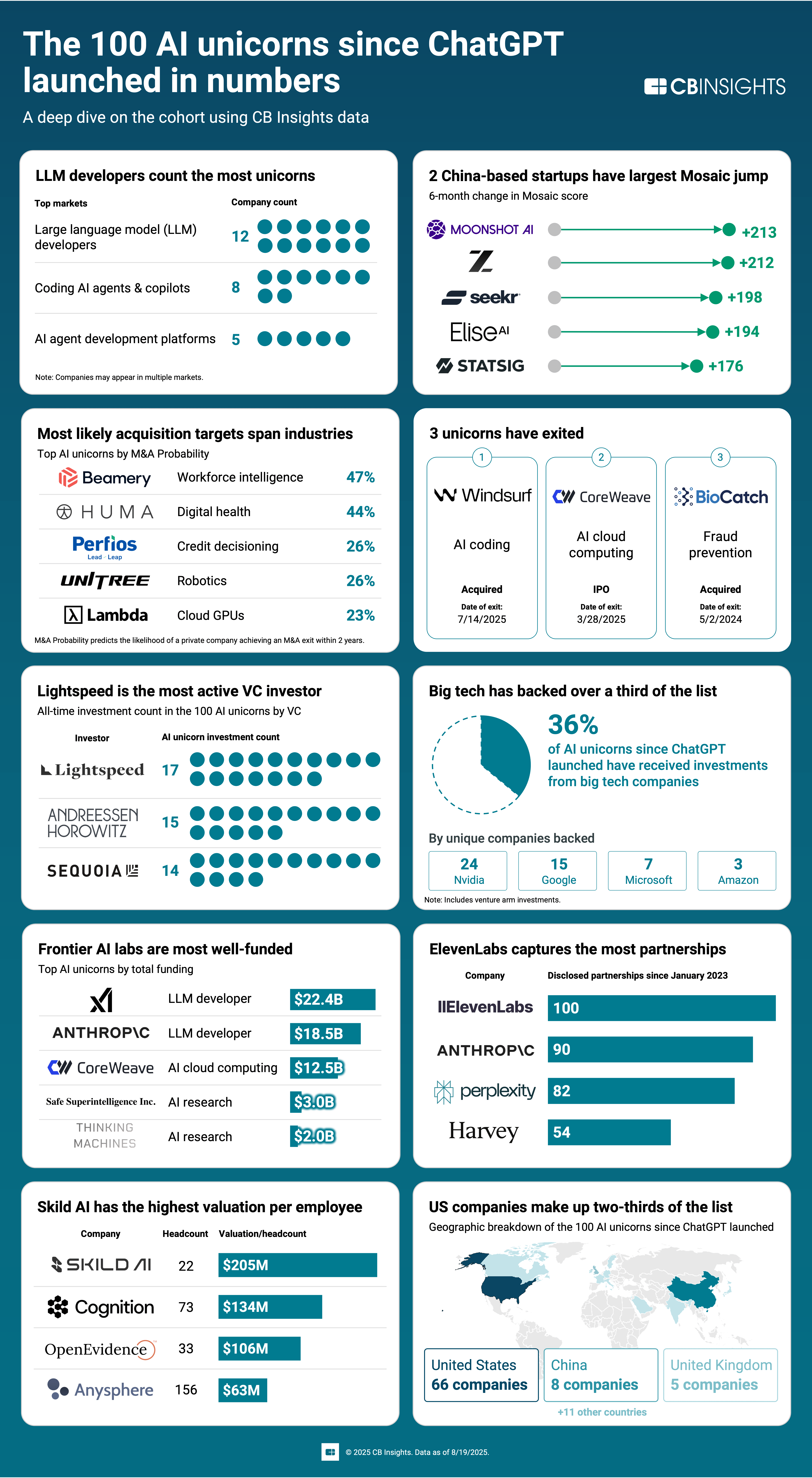One hundred AI companies valued at $1B+ have emerged since November 2022, when the launch of OpenAI’s ChatGPT brought generative AI to the masses.
The tech’s potential has reshaped the innovation landscape — with new AI unicorns now outnumbering non-AI unicorn births.
Below, we analyzed the 100 unicorns to understand how the cohort stacks up, top exits, leading investors, and more.
Download the full Book of Scouting Reports for in-depth analysis on the 100 AI unicorns. Combining CB Insights’ proprietary data and AI, scouting reports provide insight into each company’s:
- Key takeaways (including opportunities and threats)
- Valuation
- Headcount
- Outlook (Mosaic score and Commercial Maturity)
Key takeaways
- Nvidia is building its AI ecosystem through strategic investments: Nvidia has backed 24 of the 100 AI unicorns (nearly 1 in 4), more than any other investor as it secures demand for its chips. Big tech overall has invested in over one-third of these unicorns, with Google (15), Microsoft (7), and Amazon (3) also placing strategic bets on their future customers and partners.
- LLM developers and AI agents dominate the unicorn landscape: Large language model development leads with 12 unicorns, while AI agent development platforms account for 5. These foundational infrastructure categories provide core building blocks, while coding AI agents & copilots (8 unicorns) represent one of the most successful application layers built on top of this foundation. Note: categories are not mutually exclusive.
- Robotics emerges as an AI frontier: Physical AI is gaining momentum with 3 robot foundation model developers (Skild AI, Physical Intelligence, World Labs) and 3 humanoid robot developers (Figure, Unitree Robotics, Zhiyuan Robot) among the robotics companies achieving unicorn status. This signals strong investor confidence in AI’s transition from digital to physical applications.
